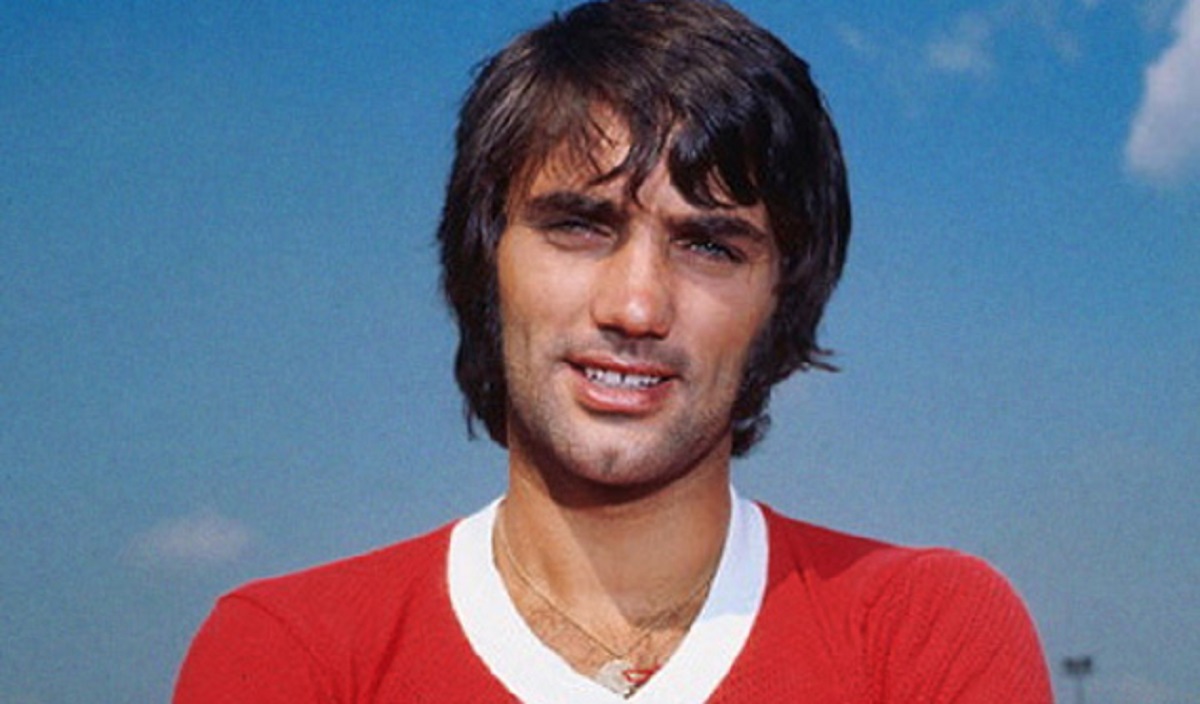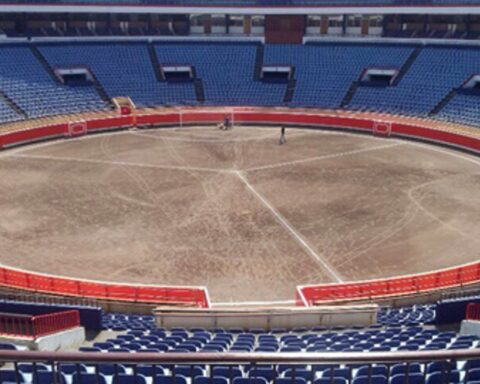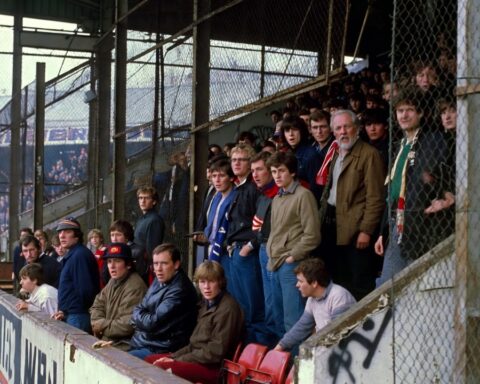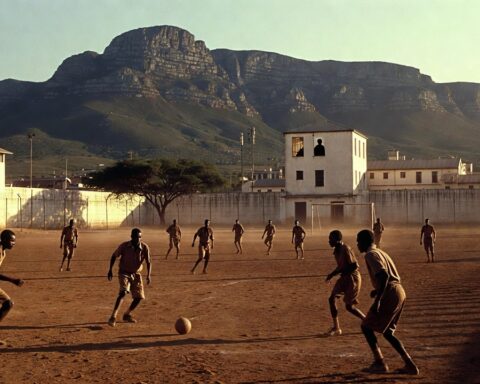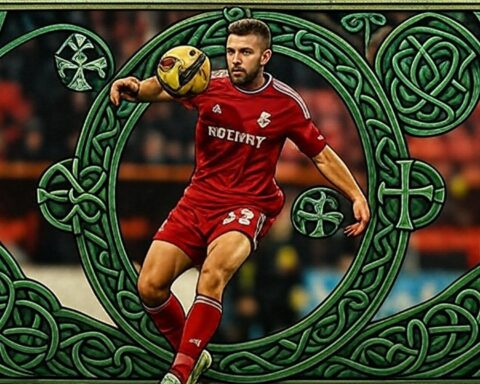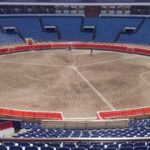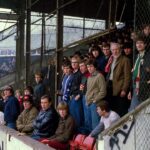(This article was originally written by Colm Murphy in January 2015)
Over the years, some very famous footballers have played for a spell in the League of Ireland with clubs enticing major stars of international football to spend brief periods of their later careers entertaining League of Ireland supporters.
In this series, Colm Murphy gives a rundown of some of the top “superstars” who “graced” the League of Ireland over the years.
George Best
While some of the other individuals on this countdown arrived in Ireland when they were clapped out, George Best was only a mere 29 years old when he joined Cork Celtic in December 1975.
Best had played his last game for Manchester United on 1stJanuary 1974 against Queens Park Rangers at Loftus Road. He was only 27. By now, of course, his private life had become the stuff of legend. He drifted around a few clubs and in November 1975 agreed a deal with Fourth Division Stockport County that allowed Best to play in Stockport’s home matches for a fee of £300 per match.
He played his last game for Stockport on Christmas Eve 1975 when he scored in a 2-2 draw with Watford. By then, Cork Celtic manager Paul O’Donovan had agreed a deal to bring Best to Cork.
In anticipation of a huge crowd, Cork Celtic changed the venue of their match against Drogheda United to the much larger Flowers Lodge venue. The deal was only for one game but Celtic were hopeful Best would stay for more.
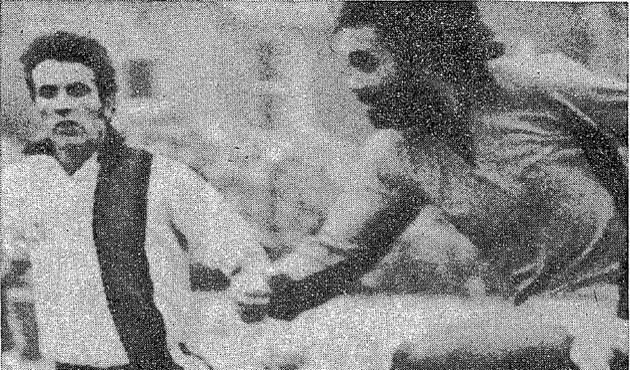
There were considerable doubts that Best would appear. But, sure enough, on Sunday 28th December, Best delighted the 12,000 spectators who turned up to see him.
Unfortunately for Cork, while Best’s arrival resulted in a hefty profit, it did nothing for the team. Best was subdued throughout and his team-mates appeared overawed by having a man who only seven years earlier had won the European Player of the Year award.
Best admitted his disappointment after the game:
“It is always hard playing with a new club for the first time”.
The 12,000 crowd paid gate receipts of £6,000 and the Cork club were keen to have him back for more. Best was certainly open to the idea:
“The game was scrappy and disappointing. But it has made me feel like wanting to return and play again.”
Celtic barely challenged during the match and Drogheda took the lead after 22 minutes when Byrne out jumped the defence to head in a corner from Clarke.
Clarke then created the second Drogheda goal when he set up Cathal Muckian after 82 minutes.
Incidentally, Dundalk defeated Sligo Rovers 3-2 on the same day in Oriel Park with goals from Jimmy Dainty, Sean Sheehy and Tony Cavanagh.
The teams that day were:
Cork Celtic: A McCarthy, Carroll, O’Leary, Edwards, Brooks, Short, Gillen, Heary, Best, McSweeney, J McCarthy.
Drogheda: McCarron, McCampbell, Mason, Donnelly, McGuigan, Stephens, Tully, O’Halloran, Clarke, Byrne, Muckian.
In the days following the match, Cork Celtic officials weighed up the pros and cons of inviting Best back again.
Judging by comments made to the media at the time it appears that the Cork officials were overwhelmed by having to deal with the issue. Celtic secretary Donie Forde said:
“We don’t really know how much money we had made. We simply pushed the money away into the safety of a van before anybody got any ideas about getting their hands on it.
“It was certainly profitable, and while it is nice to take that sort of money from one game which will help to keep us going this season, it’s annoying to think that had we won we would have been in third place in the league instead of just sixth.
“The reason that did not happen was we played a load of rubbish. But we were missing a few of our best players that would link up well with Best. I believe our players were simply overawed by the occasion.
“We don’t know if he is coming back until he phones us during the week.”
One thing was certain though. Best would only be possibly available for two more games before he made a move to the American Soccer League.
It was also disclosed that Cork had paid Best the sum of £500 for his appearance against Drogheda.
In these days, Cork had two senior football clubs. Cork Hibernians obviously felt some jealousy and set about making their own superstar capture.
Firstly, Cork Hibs announced the appointment as “consultant coach” of Alan Ball Senior. Ball was the father of the English World Cup winner who was then with Arsenal.
He had previously managed Preston North End and Halifax and had spent a spell managing in the Swedish league in 1974. However, the main talking point around Cork Hibs was their attempt to sign George Best’s old Fulham team-mate and drinking buddy Rodney Marsh who had been placed on the transfer list at Manchester City.
The association with Ball only lasted a few weeks, however, as he left to take over the reigns at Halifax.
Unsurprisingly, Best was not in Waterford for Cork Celtic’s 3-2 defeat on New Year’s Day 1976. Stockport County were hoping to have Best back for a game against Cambridge but had lost contact with him.
However, he was back in the news just a few days later when it emerged that his transfer from Stockport was to be investigated by the FAI.
Peader O’Driscoll, the secretary of the League of Ireland, said that the league had received no registration form for Best.
However, before any investigation could be made, Best made contact with Cork Hibs to say that if the money was right, he would be willing to return to Cork for their upcoming match against Bohemians.
This was confirmed on January 7th when Hibs secretary Donie Forde revealed:
“Bobby Tambling has been in touch with Best and he is flying into Cork on Saturday. We are just taking it by year. We are just satisfied with this one confirmation. What happens after Sunday we don’t know.
“We know he wants to go to the States but we hope to have him for the match against Waterford on January 25th.”
Forde also revealed that Best would be paid £600 for his appearance but that this time the club would not move to the larger Flower’s Lodge venue:
“To be honest we were disappointed with the crowd at Flower’s Lodge. Alright, you could say that we were hoping for too much.
“But we did think that we could get 20,000. Now that we know that 12,000 is more likely we know that Turner’s Cross is more than adequate.”
Best’s appearance against Bohs went much better than his debut against Drogheda. However, he was to make the front page of the papers the next morning over a bizarre incident at the end of the game.
Protected by four Gardai as he left Turner’s Cross, Best walked through a group of mostly teenage girls who tried to grab him. One of the teenagers grabbed him by the hair and Best retaliated aggressively. According to 13-year-old Colette O’Sullivan:
“He just turned around and gave me an awful clatter and pulled my hair. I never did anything to him. I got an awful shock.”
Much to Hibs’ disappointment, only 8,000 people turned up at Turner’s Cross. Best tried to win over the cynics by not only showing nice touches and skill, but also being willing to work hard and make tackles on the edge of his own area.
By half-time he was covered in mud as if to prove to everybody he was not just over to make up the numbers. In the second half Best hit a superb left-footed volley that went narrowly wide.
Apart from that, however, Best was mostly disappointing. The winning goal came after 10 minutes when a young Mick Shelley deflected Heery’s header past Smyth.
It was then announced that Waterford had completed the signing of Bobby Charlton (see elsewhere) and Cork Hibs Secretary Donie Forde told reporters to “take it for granted” that Best would line up against Charlton when the two clubs met in two weeks’ time.
Meanwhile, an FAI meeting on January 16th decided to fine Cork Hibs £50 for the delay in sending a registration form for Best.
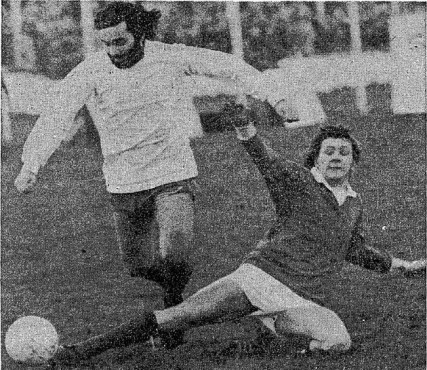
Next up for Georgie was Shelbourne at Harold’s Cross where 5,500 fans turned up to pay receipts of £3,100 for the pleasure of watching this most famous of players in action.
The opening words of Derek Jones’ match report says it all about his performance:
“How much longer will Irish soccer devotees be so gullible as to dig deeper into their pockets and stampede to grounds just to see George Best?
“As far as I am concerned I never want to set eyes on him again. I would prefer just to remember him as he was during his Manchester United days”.
Best was easily marked out of the game by Val Meehan. His only notable contributions were a couple of shots wide in the first half, took the free-kick that resulted in Cork’s only goal, forced Shels ‘keeper Willie Byrne into making a save after a 1-2 with Bobby Tambling and a last minute miss when he shot wide again.
“All I can say is”, continued Jones, “easy money for a player who simply showed that he did not want to be involved”.
Incidentally, a number of future Dundalk men were in the Shelbourne line up that day.
Vincent McKenna, Paddy Dunning and Mick Lawlor would all go on to play major roles in Jim McLaughlin’s teams over the coming years.
Two days after the Shels match it was revealed that the much anticipated Best v Charlton encounter may not materialise as Charlton had “business commitments” to take care of.
In the end, Best himself withdrew from the match due to flu. Those that went to the game saw a hugely entertaining 4-3 win for Waterford.
Best was not expected to make the trip to Dundalk for the next game (a 3-2 win for Dundalk) but was initially expected to return for their following league game.
However, on 29thJanuary, Celtic announced that they would not be asking Best to line out for the club again. According to manager O’Donavan:
“While we accept the fact that we did well financially from George’s signing, his contribution to the team’s performances were not as good as we had hoped.
“From the way he was playing, he appeared to lose interest in Irish football and we considered it wiser to terminate our agreement.”


